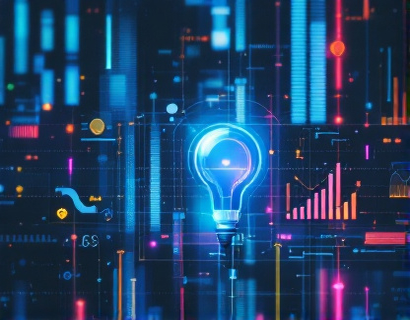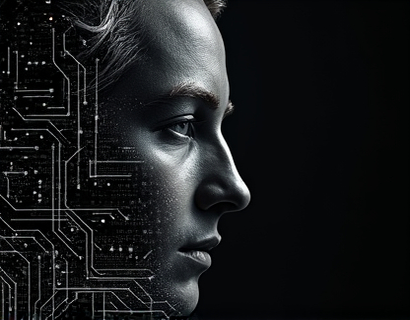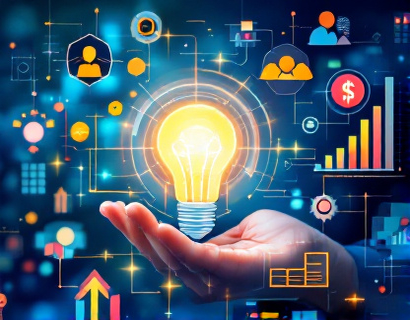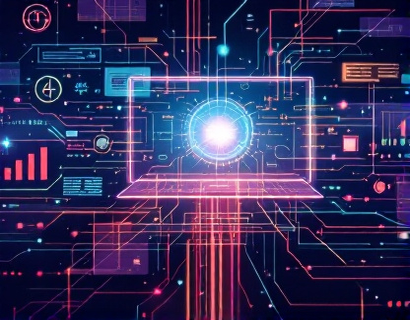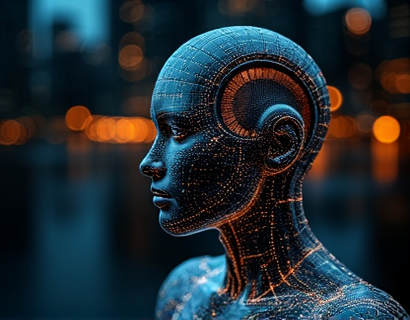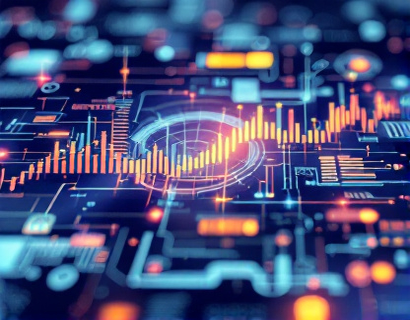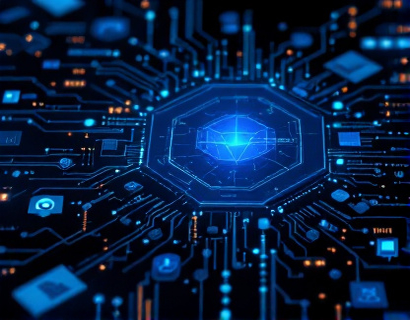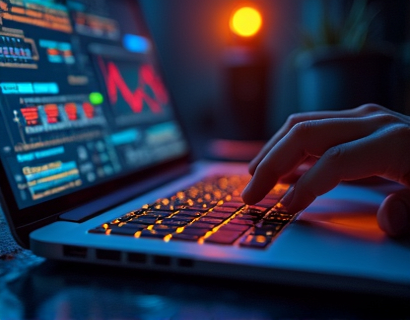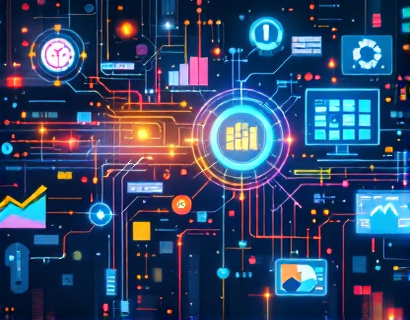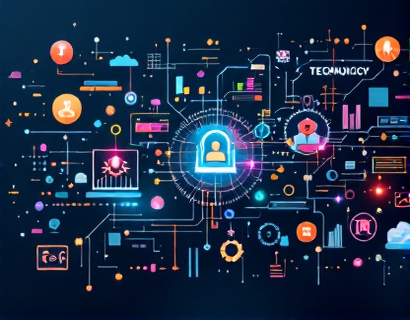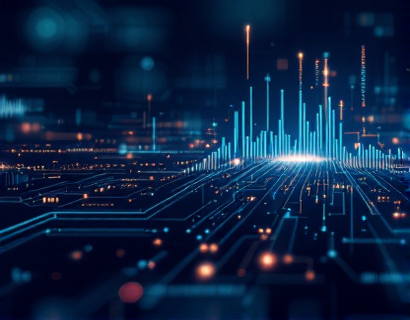Transforming Digital Experiences: The Synergy of Crypto and AI
The intersection of cryptocurrency and artificial intelligence (AI) is ushering in a new era of digital transformation, redefining business operations and enhancing user experiences across various industries. This article delves into the profound impact of these technologies, offering a comprehensive guide for tech leaders to navigate and thrive in the blockchain era. By exploring the synergy between crypto and AI, we aim to provide insights that can revolutionize digital strategies and propel organizations forward.
Understanding the Basics: Cryptocurrency and AI
Cryptocurrency, a digital or virtual currency secured by cryptography, operates on a decentralized network known as blockchain. This technology ensures transparency, security, and immutability in transactions. On the other hand, AI refers to the simulation of human intelligence processes by machines, particularly computer systems. These processes include learning (the acquisition of information and rules for using it), reasoning (using rules to reach approximate or definite conclusions), and self-correction. When combined, these technologies create powerful tools for innovation and efficiency.
The Fusion of Crypto and AI: A New Paradigm
The fusion of cryptocurrency and AI is not just a technological curiosity but a transformative force. This combination leverages the strengths of both domains to create solutions that are more secure, efficient, and intelligent. For instance, AI can enhance the functionality of smart contracts on blockchain by enabling more complex and adaptive contract behaviors. Similarly, blockchain can provide a secure and transparent environment for AI models to operate, ensuring data integrity and reducing the risk of manipulation.
Enhancing Security with AI and Blockchain
Security is a paramount concern in the digital age, and the combination of AI and blockchain offers robust solutions. AI algorithms can detect and respond to security threats in real-time, identifying patterns and anomalies that traditional security measures might miss. When integrated with blockchain, these systems become even more formidable. Blockchain's decentralized and immutable nature ensures that once data is recorded, it cannot be altered, providing a tamper-proof record. AI can monitor this data stream, enhancing the overall security posture of any system.
For example, in financial services, AI-driven systems can analyze transaction patterns to detect fraudulent activities. These systems can be built on a blockchain network, ensuring that all transactions are recorded transparently and securely. This dual approach not only enhances security but also builds trust among users, a critical factor in adopting new technologies.
Optimizing Business Operations with AI and Blockchain
Businesses are increasingly turning to AI and blockchain to optimize their operations. AI can automate routine tasks, reduce human error, and provide insights through data analysis. Blockchain, with its transparent and secure ledger, can streamline supply chain management, enhance customer trust, and improve regulatory compliance. The synergy between these technologies can lead to more efficient, transparent, and trustworthy business processes.
Consider the supply chain industry. AI can predict demand, optimize inventory, and identify bottlenecks in real-time. Blockchain can provide a transparent and immutable record of every transaction and movement within the supply chain. This combination ensures that all parties have access to the same data, reducing disputes and increasing efficiency. Smart contracts on the blockchain can automate payments and other contractual obligations based on predefined conditions, further streamlining operations.
Personalized User Experiences through AI and Blockchain
The consumer landscape is evolving, with users demanding more personalized and secure digital experiences. AI and blockchain can work together to deliver exactly that. AI algorithms can analyze user data to provide tailored recommendations, content, and services. Blockchain ensures that user data is stored securely and that users have control over their personal information. This combination not only enhances user satisfaction but also builds trust and loyalty.
For instance, in the entertainment industry, AI can curate personalized content for users based on their viewing history and preferences. Blockchain can securely store and manage user data, ensuring privacy and consent. Users can choose what data to share and with whom, giving them greater control over their digital footprint. This approach not only improves user experience but also complies with data protection regulations.
Decentralized Finance (DeFi) and AI
Decentralized Finance (DeFi) is a rapidly growing sector that leverages blockchain to create financial services without traditional intermediaries. AI can significantly enhance DeFi platforms by providing advanced analytics, risk management, and automated trading. AI algorithms can analyze market trends, predict price movements, and optimize trading strategies, all while operating on a secure and transparent blockchain network.
One key application is in lending and borrowing platforms. AI can assess creditworthiness more accurately by analyzing a broader range of data points, including non-traditional sources. This can make financial services more accessible to underserved populations. Smart contracts on the blockchain can execute loans and repayments automatically, reducing the need for intermediaries and lowering transaction costs.
Challenges and Considerations
While the potential of combining AI and blockchain is immense, there are challenges that need to be addressed. Scalability remains a significant issue for blockchain technology, as many networks struggle to handle high transaction volumes. AI models, particularly those requiring extensive training, can be resource-intensive, raising concerns about energy consumption and environmental impact. Additionally, regulatory frameworks are still evolving, and there is a need for clear guidelines to ensure responsible use of these technologies.
To overcome these challenges, ongoing research and development are essential. Innovations in blockchain, such as layer 2 solutions and more efficient consensus mechanisms, can improve scalability. In AI, advancements in federated learning and edge computing can reduce the computational load and energy consumption. Collaboration between technologists, policymakers, and industry leaders is crucial to create a regulatory environment that fosters innovation while protecting users and maintaining ethical standards.
Future Prospects: The Next-Gen Digital Landscape
The future of digital experiences will be shaped by the continued integration of AI and blockchain. As these technologies mature, we can expect to see more sophisticated and seamless applications across various sectors. From healthcare, where AI can analyze medical data on a blockchain for secure and accurate diagnoses, to education, where blockchain can verify credentials and AI can personalize learning experiences, the possibilities are vast.
For tech leaders, embracing this synergy is not just an option but a necessity. By staying ahead of the curve, organizations can gain a competitive edge, enhance user trust, and contribute to a more secure and efficient digital world. The journey into the blockchain era is just beginning, and those who navigate it with AI at the helm will be the pioneers of the next digital revolution.




